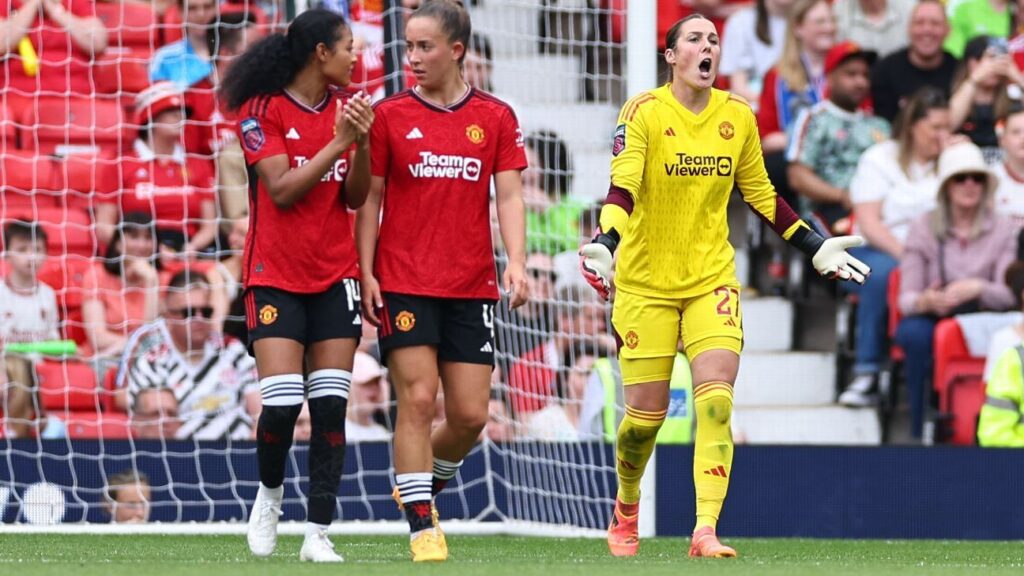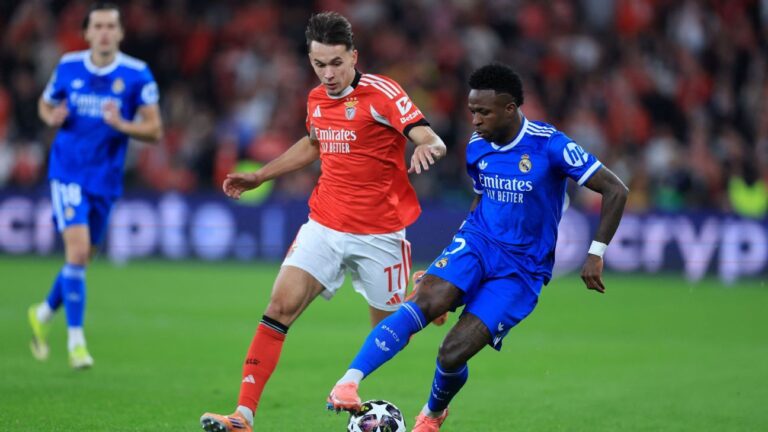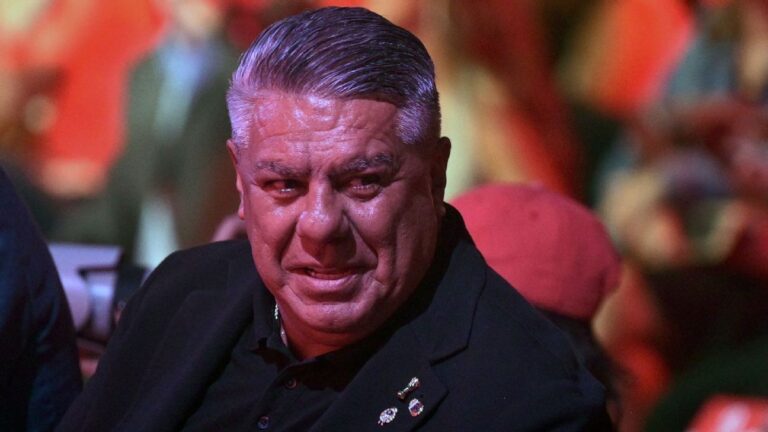England goalkeeper Mary Earps is set to leave Manchester United on a free transfer to join Paris Saint-Germain this summer, after almost two years of unsuccessful contract negotiations, but she’s not the only one. Sources have confirmed to ESPN that Nikita Parris, Lucía García, and captain Katie Zelem are also expected to depart the Red Devils, taking with them the spine of Marc Skinner’s team.
This follows a week of bad PR for the club where new minority owner Jim Ratcliffe admitted that plans for developing the women’s team were “TBC” and news that the women’s team are to be turfed out of their home at Carrington to make way for the men while they have their own facilities overhauled — uprooting both teams, rather than just moving the men directly to the portable facilities during the work.
United are one of the biggest, if not the biggest, club in the world. But if they don’t start taking their women’s team seriously, it could be the beginning of a downward spiral.
With a poorly treated women’s side in some form since the 1970s, United created an official partnership with them in 2001 but then disbanded it in 2005, shortly after the Glazer takeover, saying it was never their “intention to become involved in women’s football at a high level” and that it was not part of the “core business.” The team, who had been given hand-me-downs to wear and were gifted water bottles as leaving presents, were crushed. But as the women’s game gathered momentum in England in recent years, many people still asked: “Where’s Man United’s women’s team?”
After a 13-year absence, the side was reformed in May 2018 and, on the surface, it’s been a history of relative success ever since. With a team swiftly put together by former England captain and no-nonsense centre-back Casey Stoney — who had a clear vision and spearheaded the transfers as well as a lot of the day-to-day business in her first senior managerial role — promotion from the second tier came in their first season, as the only professional side in a semi-professional league.
Stability in the Women’s Super League (WSL) followed and they finished fourth in their first season (2019-20) and again in 2020-21. But at the end of the campaign, Stoney suddenly left her role before the reports of the deep dysfunction at United, with the manager and team facing constant uphill battles, came to light.
As reported by The Athletic, going on strike became an option for players who struggled with sub-par facilities and even housing. The complaints wouldn’t have been so jarring if they’d come from a start-up club or an independently run outfit still trying to find their way through on a minimal budget. But it came from one of the riches clubs in the world.
So much about the women’s team was an oversight.
Things improved after Skinner took charge in 2021, with another fourth-placed finish followed by coming second in 2022-23, as the club integrated the women’s team more and hired personnel to help with its running, yet in some areas this only brought about new problems with muddled business dealings.
Then this season a beacon of hope for United’s women: Jim Ratcliffe and INEOS. A new friendly face to ease the lashings of toxicity the Glazer family had woven through the historic club. Or rather a beacon of hope, for the men’s team — or “first team” as Ratcliffe recently called them.
In women’s football, you tend to get used to the platitudes, the lip service and PR speak that doesn’t suggest much will actually change, but those who have a microphone in front of them tend to know the right thing to say to pacify. Yet, this is where Ratcliffe is different, although given ample opportunities to say the right thing, the INEOS boss has a habit of sticking his foot in his mouth when answering questions about the women’s team. It’s clear they’re an afterthought and that much was made abundantly clear when he was asked by Bloomberg this week about the senior women’s team and admitted plans were “TBD.”
Of course, it will take time to right all that is wrong with the men’s team, it will be a process for Ratcliffe and United, but the INEOS boss can’t just tick through a to-do list, relegating women’s matters to the bottom like a piece of homework with a later deadline. The women’s team is a living breathing entity, it has players and staff, many on expiring contracts who need a reason to stay. Instead, they are being handed reason to leave.
One such is Earps. The England No. 1 first entered into contract discussions with United following the completion of Euro 2022 and while transfer sagas in women’s football remain something of a novelty — certainly ones that encompass multiple windows as Earps’ has — time has been passing like sand tumbling through the neck of an hourglass.
First there was Arsenal, throwing in a then-world record bid for the goalkeeper which was rejected last summer, before PSG entered the fray over the winter and eventually agreed a deal to sign her this summer. When speaking to Sky Sports last month, Earps insisted that any decision was motivated by football and the ambitions of the club, rather than (as most cynically assume when it comes to transfers) money. She said: “I’ve asked the club for some confirmation on what they’re trying to achieve and when I have those answers I’ll be able to make a decision. It’s up to the club.”
Clearly those answers, including the most recent PR gaffe from Ratcliffe, have not impressed her. And this is where United only have themselves to blame, not just in losing Earps — and on a free like England striker Alessia Russo to Arsenal before her — but for the potential mass exodus of key players this summer.
United won the FA Cup with a convincing performance against Tottenham Hotspur at Wembley last season, but followed up their title-challenging season by finishing fifth in the WSL, 20 points off champions Chelsea, and missed out on the Women’s Champions League.
The club may yet get INEOS’ backing — Brighton’s Elisabeth Terland has been linked with a move this summer, and Skinner signed a new contract recently — but their piecemeal squad, lack of identity and continued questionable treatment of their women’s team betray a different sentiment. And one that really doesn’t feel too far removed from the statement they made in 2005.




